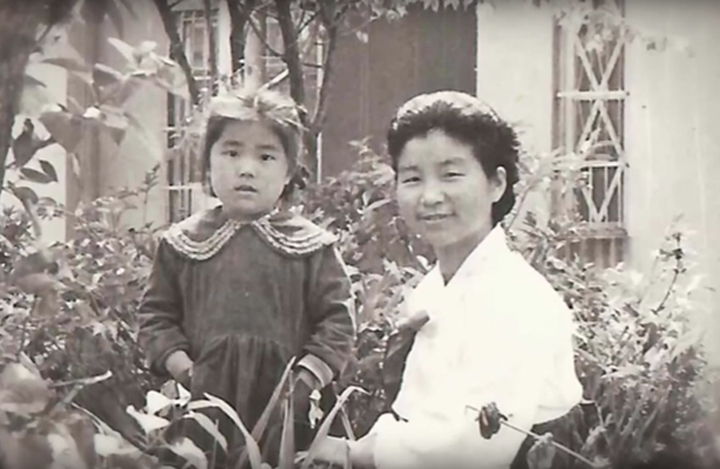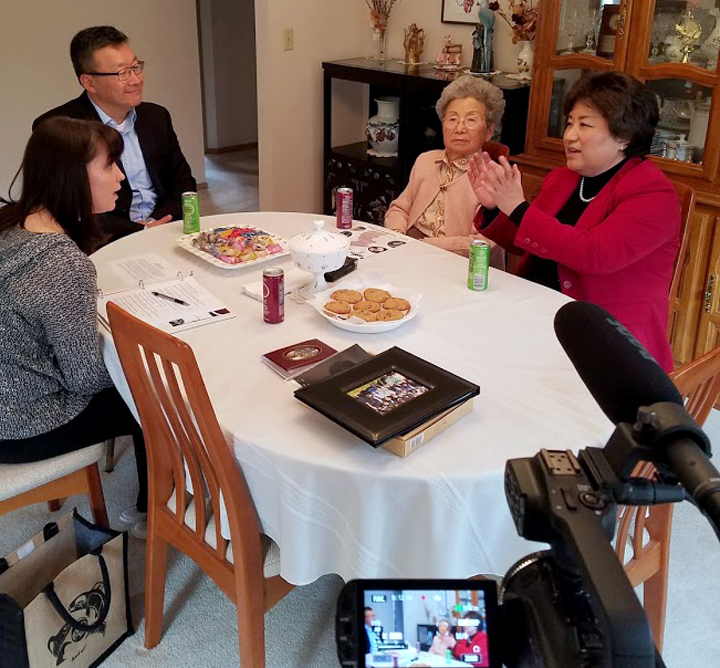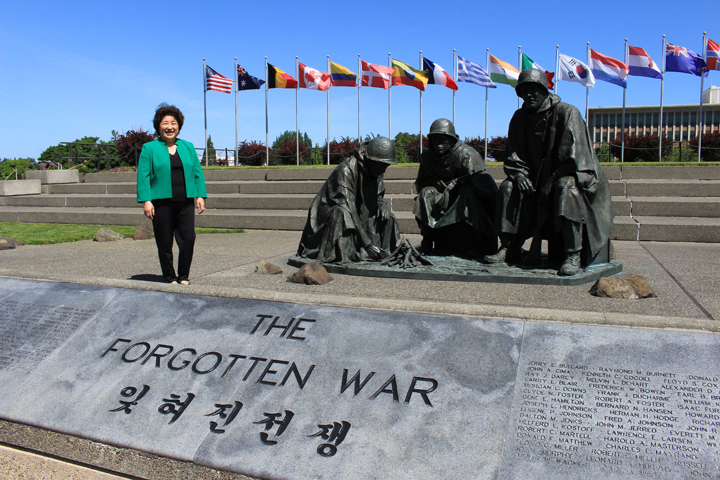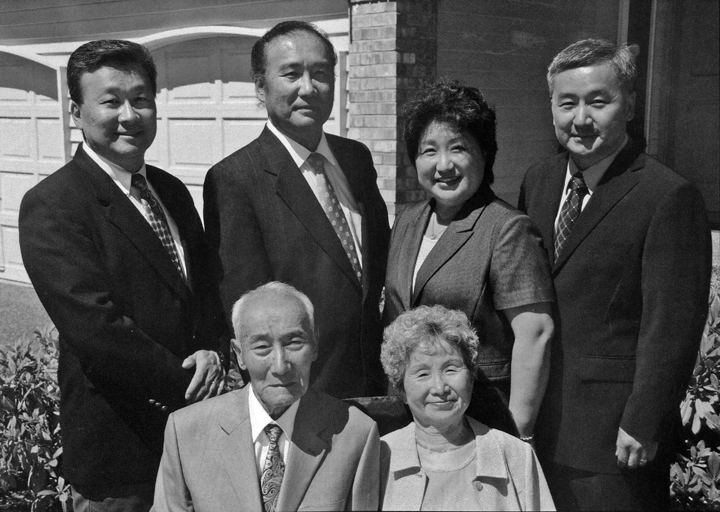
Korea 65 launch countdown: Cindy Ryu and Joan Kim
Our Legacy Washington program is getting ready for the Sept. 14 launch of its new exhibit in our front lobby, “Korea 65: The Forgotten War Remembered.”
The exhibit tells the stories of 13 Washingtonians who experienced the Korean War in different ways, from U.S. soldiers who fought in the war, to a nurse who worked in a MASH unit, to Korean Americans who grew up in Korea during or after the war.
The public is welcome to attend the Korea 65 exhibit launch at the Capitol. The program starts at 3 p.m. in the State Reception Room, with performances beginning at 2:30 p.m. in the Rotunda. Afterward, attendees are invited to come to our front lobby to view this informative and colorful exhibit.
With the launch days away, we are focusing each weekday between now and Launch Day on some of the exhibit subjects.
The first pair are state Rep. Cindy Ryu and her mother, Joan Kim.

The online profile on Ryu, written by Legacy Washington’s Lori Larson, charts her long journey from Korea to Brunei to Centralia before eventually settling in Shoreline, just north of Seattle.
“As an adult, I’ve been told ‘Go back to where you came from’—yes, in PC King County,” Ryu says in the profile. “Just because I’m getting in touch with my Koreanness does not mean I’m less of an American. Guess what? By becoming a better Korean I’m actually becoming a better American because people used to be given the false choice: ‘Are you Korean or American? Where is your allegiance?’ They’re not exclusionary. The American experience is the melting pot. We are a nation of immigrants. Even the Native Americans, they emigrated here from Asia, even if it was some 15,000 years ago.
“We are all immigrants.”

The exhibit panel on Joan Kim can be viewed here.
Joan was born as Kim Seong Suk in 1933 in Pʻyŏngan-namdo, the province of North Korea’s current capital, Pyongyang.
As a child growing up in a war-torn era, Joan lived in North Korea, Manchuria and South Korea. The communists forced her father to give up the generations-old family farm and move south. After the Korean War ended, Joan met and later married Kim Jae II.
Born in Seoul in 1957, Cindy was the second of four children. In Korea, her name was Kim Sin Hi. Cindy and her three brothers lived with their mom in Seoul while their father worked in Brunei, a nation on the island of Borneo, to support his family as a migrant worker. After three years of living apart, Joan Kim packed up her four children and moved to Brunei to be with Jae.
After the family’s visas for Brunei expired, the Kims were forced to temporarily move to the Philippines. Soon they were able to immigrate to a new country – America.
In 1969, 12-year-old Cindy, her parents and her brothers flew to Seattle. Upon landing at SeaTac Airport, they were met by a family – the Johnsons – living in the Rochester area of Thurston County. After staying with the Johnsons for six weeks, the Kims lived near Rochester for four years until they bought their first house, in Centralia in 1973.

In 1975, the Kims became U.S. citizens. Sin Hi soon changed her first name to “Cindy,” which sounded similar to her Korean first and middle names when combined.
Cindy graduated from Centralia High School in 1976, earning Top 10 honors and being chosen by her classmates as “Girl most likely to succeed.” She followed her older brother Sinil to the University of Washington, where she earned a bachelor’s degree in microbiology. She later earned a Master’s in Business Administration at the UW.
After Cindy married another Korean American, Cody Ryu, in the early 1980s, the couple eventually began working together at Cody’s insurance agency before they sold it many years later.

In 2008, while serving on the Shoreline City Council, Cindy Ryu became the first Korean-American woman to serve as mayor of a U.S. city. Elected to the House in 2010, she is Washington’s first female Korean-American state legislator. The Ryus continue to live in Shoreline.
As a four-term state representative serving the 32nd Legislative District, Ryu, D-Shoreline, chairs the House Community Development, Housing and Tribal Affairs Committee.